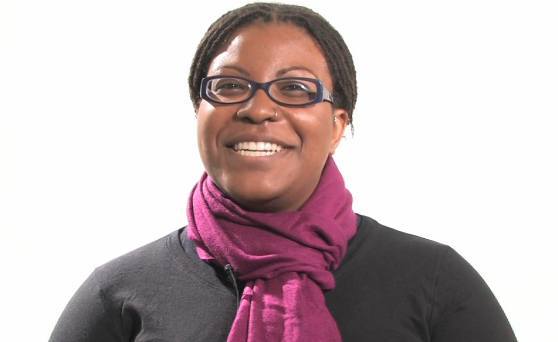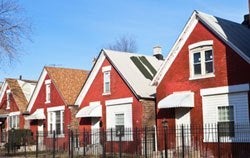Related Topics
Why Public Health? Zinzi Bailey
April 2011 -- In our new series "Why Public Health?" we ask Harvard School of Public Health students to talk about why they chose to enter the field. Above, Zinzi Bailey, a doctoral student from Jamaica who grew…

HSPH alum explores role of stress in heart health disparities
Harvard School of Public Health alum Dr. Michelle Albert conducts research on disparities in cardiovascular health across racial and ethnic groups—hypertension, for example, appears at a much younger age in black people than white people—and in particular the…
Happiness & health
[ Winter 2011] The biology of emotion—and what it may teach us about helping people to live longer Could a sunny outlook mean fewer colds and less heart disease? Do hope and curiosity somehow protect against hypertension, diabetes, and…
Researcher looks for links between neighborhoods and health
The environments where people live and work may be linked to health, according to S.V. Subramanian, associate professor of society, human development, and health at the Harvard School of Public Health and a researcher at the Center for Population…
Neighborhood social and economic environments may raise heart disease risk
July 22, 2010 -- Women who live in neighborhoods lacking in close neighborly ties are more likely to have coronary artery calcification, a key marker for underlying heart disease, than those who live in more socially cohesive neighborhoods,…

From patient to public health leader
[ Spring/Summer 2010 ] Indian Health Services Director Yvette Roubideaux is on a quest to improve American Indian health. As a child in Rapid City, South Dakota, Yvette Roubideaux, MD, MPH’97, used to fill her bag with books whenever she…

Washington Post/Kaiser/Harvard survey on experiences of low-wage workers
For immediate release: Monday, August 4, 2008 A new national survey by The Washington Post, the Kaiser Family Foundation, and Harvard University provides a detailed look at the real life experiences and views of low-wage workers. The survey assesses financial challenges low-wage…
HSPH research on broad determinants of health disparities featured in health affairs
For immediate release: Tuesday, March 11, 2008 Four papers by research faculty at the Harvard School of Public Health (HSPH) are featured in the March/April issue of the journal Health Affairs, which focuses on racial, ethnic, and other…